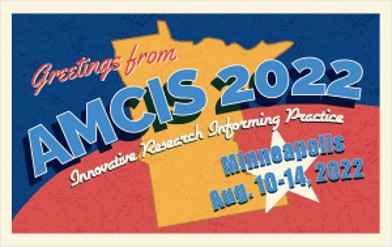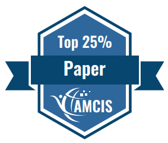SIG - Adoption and Diffusion of IT
Loading...
Paper Type
Complete
Paper Number
1012
Description
Organizations increasingly use machine learning (ML) to transform their operations. The technical complexity and unique challenges of ML lead to the emergence of ML operations (MLOps) practices. However, the research on MLOps is in its infancy and is fragmented across disciplines. We extend and integrate these conversations by developing a framework that accounts for the technical, organizational, behavioral, and temporal aspects of the overarching ML-based solution lifecycle. We identify the key components of ML-based solution lifecycle and their configuration through an in-depth study of Finland’s Artificial Intelligence Accelerator (FAIA) and follow-up semi-structured interviews with experts from multiple international organizations outside FAIA. This study contributes to the recent IS literature concerned with the sociotechnical aspects of ML. We bring new insights into the discussion on organizational learning, conjoined agency, and automation and augmentation. These insights extend and complement MLOps practices, thereby helping organizations better realize the potential of ML technology.
Recommended Citation
Mucha, Tomasz Marcin; Ma, Sijia; and Abhari, Kaveh, "Beyond MLOps: The Lifecycle of Machine Learning-based Solutions" (2022). AMCIS 2022 Proceedings. 9.
https://aisel.aisnet.org/amcis2022/sig_adit/sig_adit/9
Beyond MLOps: The Lifecycle of Machine Learning-based Solutions
Organizations increasingly use machine learning (ML) to transform their operations. The technical complexity and unique challenges of ML lead to the emergence of ML operations (MLOps) practices. However, the research on MLOps is in its infancy and is fragmented across disciplines. We extend and integrate these conversations by developing a framework that accounts for the technical, organizational, behavioral, and temporal aspects of the overarching ML-based solution lifecycle. We identify the key components of ML-based solution lifecycle and their configuration through an in-depth study of Finland’s Artificial Intelligence Accelerator (FAIA) and follow-up semi-structured interviews with experts from multiple international organizations outside FAIA. This study contributes to the recent IS literature concerned with the sociotechnical aspects of ML. We bring new insights into the discussion on organizational learning, conjoined agency, and automation and augmentation. These insights extend and complement MLOps practices, thereby helping organizations better realize the potential of ML technology.
When commenting on articles, please be friendly, welcoming, respectful and abide by the AIS eLibrary Discussion Thread Code of Conduct posted here.




Comments
SIG ADIT